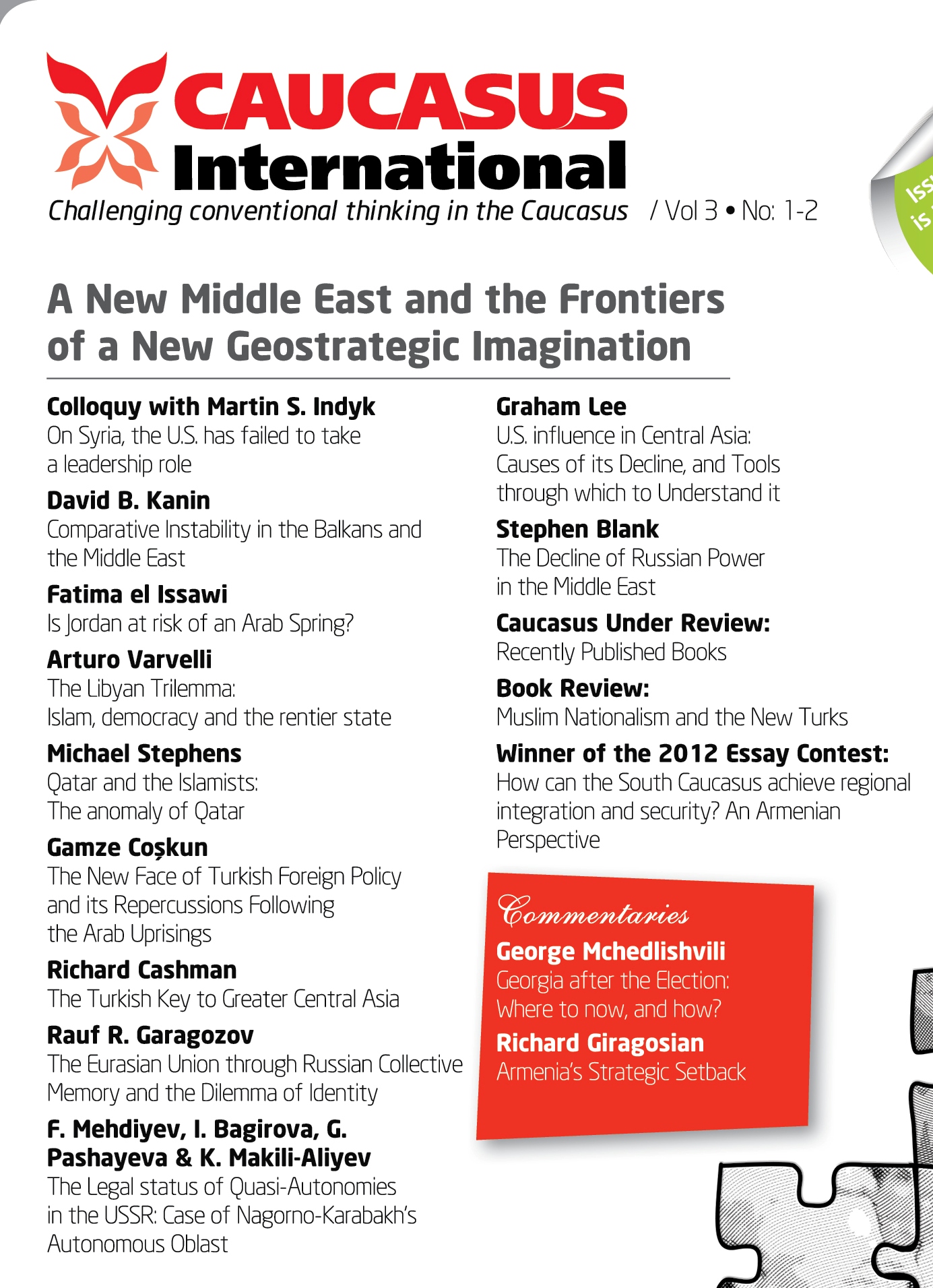The New Face of Turkish Foreign Policy and its Repercussions Following the Arab Uprisings
To date, and especially since the beginning of the Arab uprisings, there have been numerous discussions of Turkey’s possible role in shaping the systemic transformation in the Middle Eastern countries. Many people, including various political figures, have sympathized with the idea that the Turkish experience can serve as a model, example, or point of reference. Some, pointing to deficiencies and problems in Turkey’s economic, political and social systems, have argued either that Turkey cannot be considered a model at all, or it can serve as an example only in certain areas. But on the other hand, quite a few Arabs have repeatedly emphasized that they do not need a role model at all, as they are capable of establishing their own systems. Others have suggested that no one should insist on holding up an example –especially Turkey, as it is also a young country with limited democratic experience; it would be better to offer the Turkish model on a peer basis. What put Turkey under the spotlight and brought all these discussions to the table was the convergence of Ankara’s changing foreign policy course, changing international and regional contexts, and the Justice and Development Party (AKP) era. Without a doubt, Turkish foreign policy became more active, independent and self-confident during this period. These policies were largely developed by Turkish Foreign Minister Ahmet Davutoğlu, and proved to be effective - especially in the Middle East and Turkey’s near abroad. However, the unrest in Arab countries, followed by civil disturbance and uprisings, posed significant challenges to these policies. In this respect, this article will first of all explain the main principles of Turkish foreign policy under the AKP government. Then, the author will discuss questions of their practical application and success during the Arab Spring, and the repercussions of these policies across the Arab world
Latest news
- 03/17/2020 Call for Submission: “Non-Alignment Movement and Its Perspective in International Affairs”. Deadline: 1 July 2020 2624 views
Popular articles
- 02/24/2020 The Role of Irredentism in Russia’s Foreign Policy 2535 views
- 02/24/2020 Construction of sub-national identity vis-à-vis parent state: Gagauz case in Moldova 2218 views
- 02/24/2020 The Conflict in Ukraine - The Geopolitics of Separatism and Divergent Identities (Commentary) 2072 views
- 02/24/2020 The Role of the Soviet Past in Contemporary Georgia 2044 views





